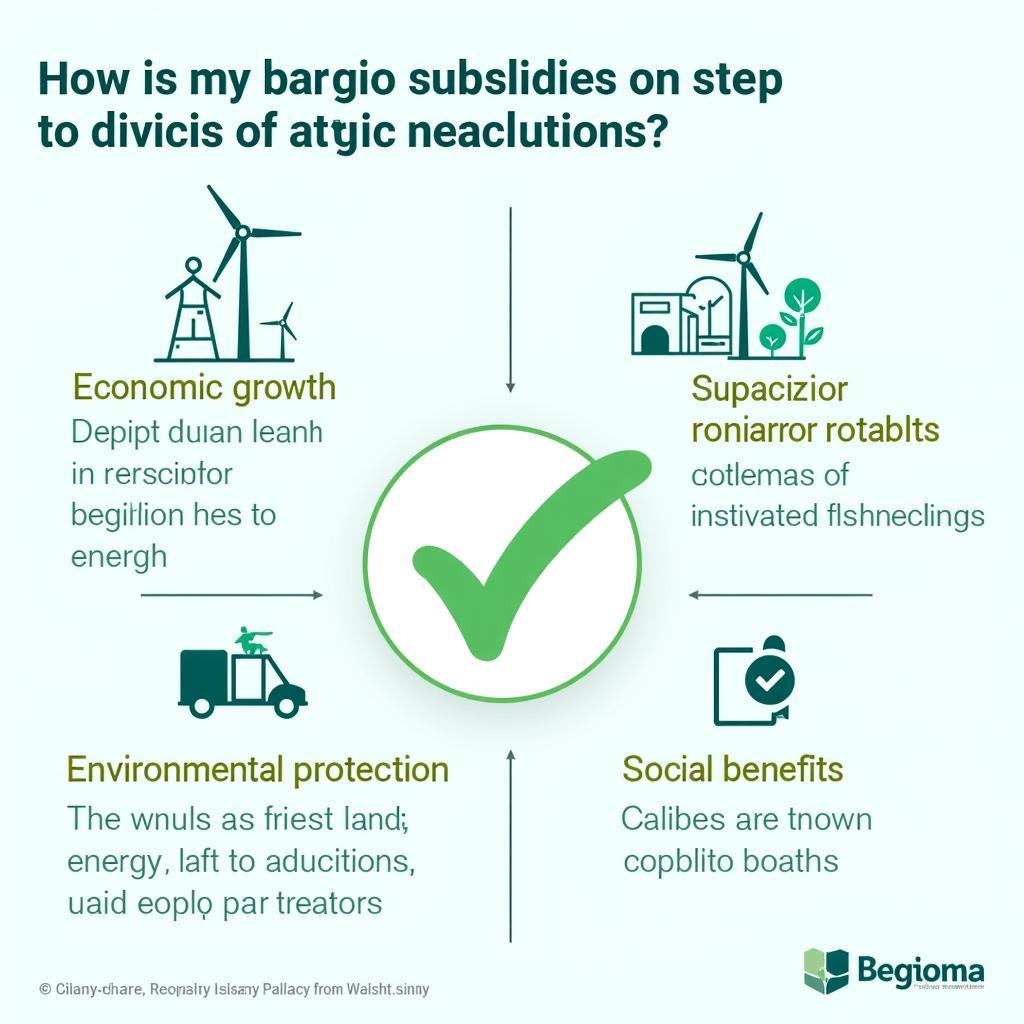Renewable energy subsidies have become an increasingly common topic in IELTS Writing Task 2, appearing in various forms across different test versions. Based on analysis of past papers and current trends, this issue is likely to remain relevant given the global focus on sustainable development and climate change mitigation.
Let’s examine a recent actual IELTS question that exemplifies how this topic is tested:
Some people believe that governments should provide subsidies to make renewable energy like solar and wind power more affordable for the general public. Others argue that governments should not interfere with energy markets. Discuss both views and give your own opinion.
Invest more in renewable energy sources? has become a critical question for policymakers worldwide. Let’s analyze this topic in detail through sample essays at different band scores.
Analysis of the Question
The question requires:
- Discussion of both perspectives on government renewable energy subsidies
- Clear personal stance
- Well-supported arguments
- Balanced analysis of pros and cons
 Government subsidies for renewable energy concept illustration
Government subsidies for renewable energy concept illustration
Band 8.5 Sample Essay
The debate over government intervention in renewable energy markets through subsidies has garnered significant attention. While some advocate for financial support to accelerate clean energy adoption, others maintain that market forces should operate independently. I believe targeted government subsidies are essential for transitioning to sustainable energy systems.
Proponents of government subsidies present compelling arguments. Firstly, renewable energy technologies often require substantial initial investments, making them prohibitively expensive for many consumers and businesses. Government support can reduce these upfront costs, enabling broader adoption across society. Additionally, subsidies can help level the playing field with conventional energy sources, which have historically benefited from various forms of government support.
However, critics raise valid concerns about market interference. They argue that subsidies can distort market dynamics, potentially leading to inefficient resource allocation and reduced innovation. Furthermore, taxpayer money used for subsidies could be directed toward other pressing needs. There are also concerns about creating dependency on government support.
In my view, carefully designed subsidy programs are crucial for accelerating renewable energy adoption. The urgent need to address climate change justifies government intervention, particularly given the positive externalities of renewable energy. Renewable energy incentives and policies have proven successful in countries like Germany and Denmark, demonstrating their effectiveness in driving clean energy transitions.
Band 6.5 Sample Essay
Many people have different opinions about whether governments should give money to help make renewable energy cheaper. I will discuss both sides and give my opinion on this topic.
On one hand, government subsidies for renewable energy can be good. First, they make solar panels and wind power cheaper for normal people to buy. This helps more people use clean energy instead of fossil fuels. Second, it helps reduce pollution and fight climate change, which is a big problem today.
But some people think governments should not give these subsidies. They say it costs too much money that could be used for other things like schools or hospitals. Also, they think companies should compete fairly without government help. This might make them work harder to make better products.
I think government subsidies for renewable energy are necessary. Should governments subsidize green technology is an important question because climate change is very serious. Even though subsidies cost money, they help protect our environment for the future.
Analysis of Band Scores
Band 8.5 Essay Analysis
- Sophisticated vocabulary and complex structures
- Clear organization and cohesion
- Well-developed arguments with specific examples
- Effective use of academic language
- Maintains formal tone throughout
Band 6.5 Essay Analysis
- Basic but clear arguments
- Simple vocabulary and grammar structures
- Limited use of complex sentences
- Some repetition
- Less sophisticated examples
Key Vocabulary
- subsidy (n) /ˈsʌbsɪdi/ – financial support from government
- renewable energy (n) /rɪˈnjuːəbəl ˈenədʒi/ – sustainable power sources
- intervention (n) /ˌɪntəˈvenʃən/ – involvement in a situation
- externalities (n) /ˌekstəˈnælɪtiz/ – indirect effects of economic activity
- innovation (n) /ˌɪnəˈveɪʃən/ – new methods or ideas
- allocation (n) /ˌæləˈkeɪʃən/ – distribution of resources
- transition (n) /trænˈzɪʃən/ – process of change
- infrastructure (n) /ˈɪnfrəstrʌktʃər/ – basic physical systems
How renewable energy can address global poverty shows another important dimension of this topic that candidates might encounter in future tests. Practice writing your own response to this question and share it in the comments for feedback.
 Benefits of implementing renewable energy subsidies
Benefits of implementing renewable energy subsidies
Similar questions you might encounter:
- Should governments make renewable energy mandatory for new buildings?
- Do the benefits of renewable energy subsidies outweigh their costs?
- How can governments best promote clean energy adoption?
Remember to structure your response clearly and support your arguments with relevant examples from your country or global contexts.


